PLENARY SPEAKERS

Dr. Carla Cruz
Chemistry Department, Faculty of Sciences, University of Beira Interior and CICS-UBI, Portugal
Speech Title: Exploring the structure and recognition of G-quadruplex in the B-MYB proto-oncogene promoter

Krishna Ganesh
DST-SERB National Science Chair Jawaharlal Nehru Centre for Advanced Scientific Research (JNCASR), IISER Pune and IISER Tirupati, India
Dr. Ganesh has received several prestigious professional awards including Shanti Swarup Bhatnagar award of Chemical sciences (CSIR, 1987) and The World Academy of Science (TWAS, Trieste) Prize for Chemical Sciences (2005). He is a Fellow of all three Science Academies in India and a Fellow of The World Academy of Sciences (TWAS) and served as the President of Division III of IUPAC (2012-2014). He is one of the founding Editor in-Chief of ACS Omega, an open access journal from ACS since its inception in 2016.
Prof. Ganesh is the founding and the first Director of two Indian Institutes of Science Education and Research (IISER) at Pune (June 2006-October 2017) and Tirupati (November 2017- April 2023). He provided great leadership to establish IISERs as new brand of science education Institutes, now attaining global recognition. In view of his original scientific contributions in chemistry and biology of nucleic acids and for establishing two premier ISERs, the Government of India bestowed on him national civilian honour of Padmashri in 2023.
Speech Title: An old friend with new face: Janus Peptide Nucleic Acids (ja-PNA) that form polyplex structures with DNA and RNA

Dr. Alice Ghidini
Sixfold Bioscience, RNA Structure & Characterization, UK
Dr Alice Ghidini is the Lead of the RNA Structure and Characterization team in Sixfold Bioscience Ltd, a biotech start-up located in the Imperial College I-HUB. In her current role she has been awarded the Future leader fellowship by the UK Research and Innovation (UKRI) for the development of new RNA-therapeutics and their delivery to extrahepatic tissues. She has a broad background in nucleic acid therapeutics technology gained during her doctoral and postdoctoral studies in the labs of Prof. Stromberg, Prof. Dervan and Prof. Hall. To further pursue her interest in the oligonucleotide therapeutic field, in 2021 she joined the Oligonucleotide platform of AstraZeneca as Assistant Principal Scientist in the Biophysics department, where she studied the influence of oligonucleotide/proteins binding on their toxicity and potency. Dr Ghidini accumulated expertise on the interaction between oligonucleotides and proteins/RNA targets. In specific she has been working on the development of innovative technologies such as RNA-based artificial enzymes, oligo triplexes and oligonucleotide-based PROTACs and structural/biophysical/
Speech Title: coming soon
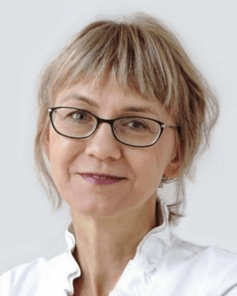
Prof. Dorota Gryko
Institute of Organic Chemistry Polish Academy of Sciences, Poland
Speech Title: Vitamin B12 – a potential drug delivery vehicle
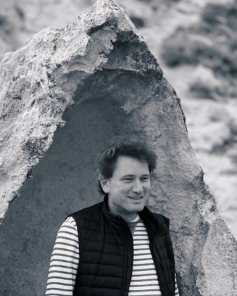
Florian Hollfelder
University of Cambridge, UK
Florian Hollfelder was educated at the Technical University of Berlin (Diplom-Chemiker) and Cambridge University (MPhil). After a formative stay at Stanford (with Dan Herschlag) on free-energy relationships in enzymes) he joined Tony Kirby’s group at the Chemistry Department of Cambridge University working on enzyme models and physical-organic chemistry. During his PhD he also collaborated with Dan Tawfik (on the mechanism and evaluation of model enzymes such as catalytic antibodies). His postdoctoral work at Harvard Medical School (with Chris T. Walsh) was concerned with the biosynthesis and action of the natural antibiotic microcin B17.
In 2001 he returned to Cambridge to start his own research group in the Biochemistry Department, where he is Professor in Chemical and Synthetic Biology. The group’s research centres around quantitative and mechanistic questions at the chemistry/biology interface, involving low- and high-throughput approaches.
Florian is holder of an ERC Advanced Grant, Director of Studies and Graduate Mentor at Trinity Hall. He was coordinator of several EU-funded trans-national collaborative initiatives, e.g. the H2020 research training networks MMBio (‘Molecular Tools for Nucleic Acid Manipulation for Biological Intervention‘) and ES-Cat (‘Directed Protein Evolution for Synthetic Biology and Biocatalysis’), ENDIRPRO & ENEFP on directed evolution of functional proteins, ProSA on protein-protein interactions and PhosChemRec on the chemical biology of phosphates.
Speech title : Directed Molecular Evolution at Ultrahigh Throughput and via Machine Learning
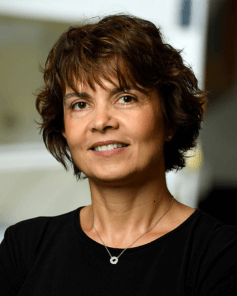
Prof. Efie Kokkoli
Department of Chemical & Biomolecular Engineering, Institute for NanoBioTechnology, Johns Hopkins University, USA
Efie Kokkoli is a professor in the Department of Chemical and Biomolecular Engineering and a core member of the Institute for NanoBioTechnology at Johns Hopkins University. She received her Diploma in Chemical Engineering from the Aristotle University of Thessaloniki in Greece, her Ph.D. from the University of Illinois at Urbana-Champaign and did her postdoc at the University of Minnesota and the University of California, Santa Barbara. Efie is a targeted drug delivery specialist. She engineers innovative functionalized biomaterials and targeted nanoparticles for the delivery of therapeutics to help transform methods of cancer treatment.
Speech Title: coming soon
Dr. Annemieke Madder
Organic and Biomimetic Chemistry Research group Department of Organic and Macromolecular Chemistry Ghent University, Belgium
Prof. Dr. Annemieke Madder obtained her Ph.D in organic chemistry from Ghent University in 1997. Subsequently, she went for postdoctoral stays at the University of Milan and at the Karolinska Institute in Sweden. She returned to Ghent to take up tenure as assistant professor in 2002 and start her independent career. She was promoted Professor at the Department of Organic and Macromolecular Chemistry in 2014 and Full Professor in 2022. Currently, she heads the Organic and Biomimetic Chemistry Research Group specialized in the design and synthesis of modified peptides and nucleic acids and methods for their conjugation and labeling. She has published >140 papers in high IF journals (including Angewandte Chemie, Journal of the American Chemical Society, Nucleic Acids Research, Nature Chemical Biology) and is inventor on 6 patents. She delivered 35 defended PhDs, >90 Masters and 15 Post-docs. She is currently supervising 10 running PhDs, 4 postdocs, 1 technician and 5 master students. Building expertise in peptide and oligonucleotide sciences for more than 20 years, her group now tries to contribute to tackling the major challenge of targeted delivery of next-generation therapeutic biologicals where successful conjugation chemistries are prerequisite for the success of such therapeutic strategies. In parallel, the developed technologies are exploited for applications in advanced biomarker detection. Tools such as singlet oxygen (or ROS species on cellular level) and red light activation of photosensitizers are used to achieve selective precision ligations between and/or to biomolecules.
Speech Title: Coming soon
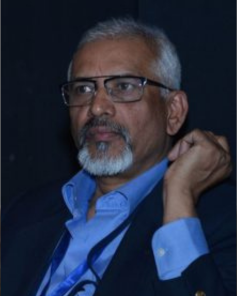
Prof. Anil Kumar Mishra
Institute of Nuclear Medicine and Allied Sciences, Defence Research and Development Organization, Ministry of Defence, Govt. of India and Indian Institute of Technology Roorkee, India
Dr Mishra is Director at Institute of Nuclear Medicine and Allied Sciences, Defence Research and Development Organization, Ministry of Defence, Govt. of India. Currently, he is visiting Professor at Indian Institute of Technology Roorkee, Uttarakhand, India.
He obtained his M.S. (Chemistry) in 1984 from Gorakhpur University, Gorakhpur, and Ph.D. (Chemistry) in 1988 from Banaras Hindu University, Varanasi. During his career, he held positions as Post-doctorate fellow at Universite de Bourgogne, Dijon, France to develop macrocyclic chemistry for the separation of gases; Research Scientist at University of California, Davis, USA to design C-substituted macrocyclic chemistry to load metalions for imaging and therapy; Senior Scientist at INSERM U-463, Nantes, France where he realized the chemistry of alpha emitters to treat solid tumors and to exploit the chemistry of lanthanides for the therapy of ovarian cancer. He was Visiting Professor at Max-Planck Institute, Germany where he developed the
responsive contrast agents for neuroimaging. Dr. Mishra has published more than 312 papers, in various journals of international repute. Dr Mishra is granted US, European and Indian patents. He has received several awards and most prestigious one is DRDO-Young scientist by Prime Minister (Bharat Ratna Shri Atal Bihari Vajpayee) of India in 1999.
Speech Title: Molecular Medicine: To Synthesize Theragnostic Probes and its Target Delivery with Enhanced Affinity
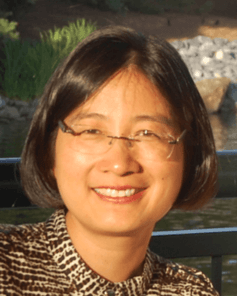
Dr. Ling Peng
Centre Interdisciplinaire de Nanoscience de Marseille, CNRS, UMR 7325, France
Dr. Ling PENG was awarded with the Prize of Dr & Mme Henri Labbé of the French Academy of Sciences in 2017 and the Distinguished Member of French Chemical Society in 2020.
Speech Title: Modular self-assembling supramolecular dendrimers for biomedical applications

Prof. C.I. Edvard Smith
Department of Laboratory Medicine Karolinska Institutet, Sweden
CIE Smith is a professor in molecular genetics at Karolinska Institutet. He runs two research programs, INTRACELLULAR SIGNALING and TARGETING OF GENOMIC DNA using synthetic oligonucleotides. He has a special interest in targeting DNA in tandem repeat disorders such as Huntington’s disease. He identified the BTK tyrosine kinase as the gene affected in X-linked agammaglobulinemia and his current focus is on therapeutic gene editing as well as studies of BTK inhibitors, which have revolutionized leukemia treatment.
He established Vecura, a major European academic GMP facility, and is currently involved in setting up the Karolinska ATMP Center. He has been a member of the Nobel Assembly and of the Nobel Committee. In 2005 he received the Descartes Prize in Life Sciences.
Speech Title: Targeting Genomic DNA with Oligonucleotides

Dr. Seergazhi G. Srivatsan
Indian Institute of Science Education and Research, India
S. G. Srivatsan received his master’s degree in Chemistry from Indian Institute of Technology, Madras in 1995 and Ph. D. in Bioorganic Chemistry from Indian Institute of Technology, Kanpur in 2003 under the supervision of Prof. Sandeep Verma. He was an Alexander von Humboldt postdoctoral fellow with Prof. Michael Famulok at University of Bonn, Germany, where he developed catalytic RNAs and pharmacophores that target protein-RNA complexes and their enzyme activity. Subsequently, he joined Prof. Yitzhak Tor group as a postdoctoral fellow in University of California, San Diego. He joined Indian Institute of Science Education and Research (IISER), Pune in November 2008. He is currently a full professor at IISER Pune. He received the CDRI AWARDS–2019 for Excellence in Drug Research, Chemical Research Society of India Bronze medal (2020), National Prize for Research on Chemistry of Peptides and Nucleic Acids (sponsored by Professor CNR Rao Education Foundation) and Sun Pharma Research Award 2020. He also serves as an Editorial Advisory Board member of ACS Bioconjugate Chemistry. His research interests lie in the area of nucleic acid chemistry and biophysics, particularly in the development of nucleoside probes for studying nucleic acid structure and function, nucleoside-based self-assemblies, and nucleic acid labeling and imaging tools.
Speech Title: coming soon
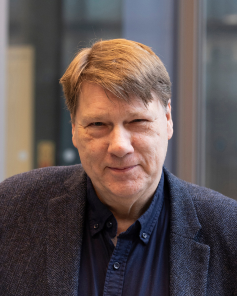
Prof. Roger Stromberg
Karolinska Institutet, Sweden
Roger Strömberg is a Professor of Organic and Bioorganic Chemistry at Karolinska Institutet, Stockholm Sweden. He obtained his PhD degree in organic chemistry at Stockholm University and early on did postdoctoral work and recently a sabbatical as visiting professor, both at Cambridge University. He has a vast experience in nucleic acid chemistry and has worked with many aspects of nucleic acid chemistry and oligonucleotide synthesis. This includes studies on reaction mechanisms, enzymes and enzyme models, synthesis methodology, protecting group strategies, peptides etc. For the past 15 years or so he has more and more focused on design and synthesis methods for of modified oligonucleotides, oligonucleotide based artificial nucleases, oligonucleotide conjugates with other biomolecules to achieve and enable synthesis of oligonucleotide therapeutics.
Speech Title: Artificial PNAbased RNases
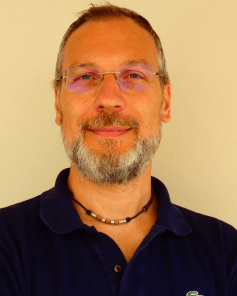
Dr. Carlo Vascotto
International Institute of Molecular Mechanisms and Machines, Polish Academy of Sciences, Poland
Speech Title: Damage, repair and degradation of mitochondrial nucleic acids
Conference hashtag #SupraBio2024
